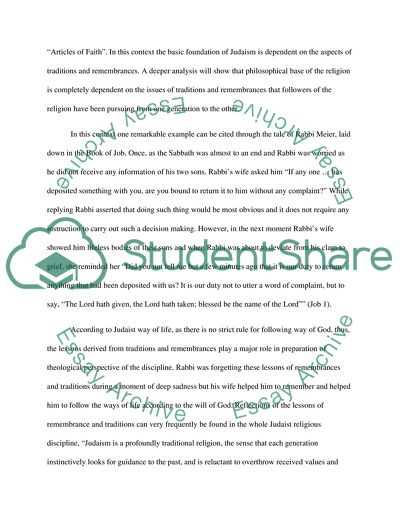Cite this document
(Why Traditions and Remembrance are So Important in Judaism Essay, n.d.)
Why Traditions and Remembrance are So Important in Judaism Essay. https://studentshare.org/religion-and-theology/1734123-why-traditions-and-remembrance-is-so-important-in-judaism
Why Traditions and Remembrance are So Important in Judaism Essay. https://studentshare.org/religion-and-theology/1734123-why-traditions-and-remembrance-is-so-important-in-judaism
(Why Traditions and Remembrance Are So Important in Judaism Essay)
Why Traditions and Remembrance Are So Important in Judaism Essay. https://studentshare.org/religion-and-theology/1734123-why-traditions-and-remembrance-is-so-important-in-judaism.
Why Traditions and Remembrance Are So Important in Judaism Essay. https://studentshare.org/religion-and-theology/1734123-why-traditions-and-remembrance-is-so-important-in-judaism.
“Why Traditions and Remembrance Are So Important in Judaism Essay”. https://studentshare.org/religion-and-theology/1734123-why-traditions-and-remembrance-is-so-important-in-judaism.


